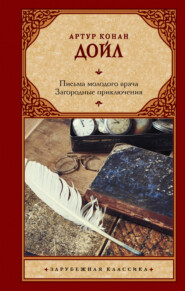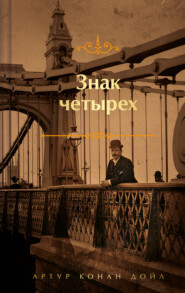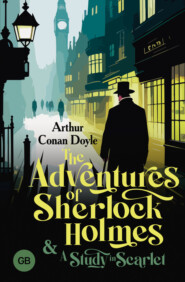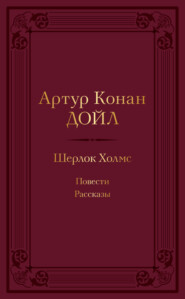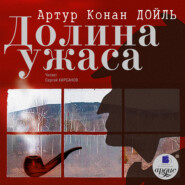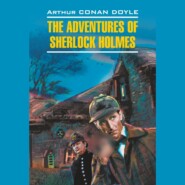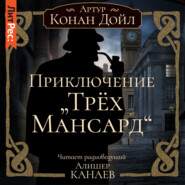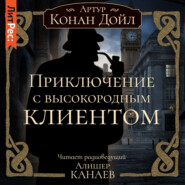По всем вопросам обращайтесь на: info@litportal.ru
(©) 2003-2024.
✖
The Stark Munro Letters
Настройки чтения
Размер шрифта
Высота строк
Поля
After all, I see more and more clearly that both men and women are incomplete, fragmentary, mutilated creatures, as long as they are single. Do what they may to persuade themselves that their state is the happiest, they are still full of vague unrests, of dim, ill-defined dissatisfactions, of a tendency to narrow ways and selfish thoughts. Alone each is a half-made being, with every instinct and feeling yearning for its missing moiety. Together they form a complete and symmetrical whole, the minds of each strongest where that of the other needs reinforcing. I often think that if our souls survive death (and I believe they do, though I base my believe on very different grounds from yours), every male soul will have a female one attached to or combined with it, to round it off and give it symmetry. So thought the old Mormon, you remember, who used it as an argument for his creed. “You cannot take your railway stocks into the next world with you,” he said. “But with all our wives and children we should make a good start in the world to come.”
I daresay you are smiling at me, as you read this, from the vantage ground of your two years of matrimony. It will be long before I shall be able to put my views into practice.
Well, good-bye, my dear old chap! As I said at the beginning of my letter, the very thought of you is good for me, and never more so than at this moment, when I am alone in a strange city, with very dubious prospects, and an uncertain future. We differ as widely as the poles, you and I, and have done ever since I have known you. You are true to your faith, I to my reason – you to your family belief, I to my own ideas; but our friendship shows that the real essentials of a man, and his affinity for others, depends upon quite other things than views on abstract questions. Anyway, I can say with all my heart that I wish I saw you with that old corncob of yours between your teeth, sitting in that ricketty American-leather armchair, with the villanous lodging-house antimacassar over the back of it. It is good of you to tell me how interested you are in my commonplace adventures; though if I had not KNOWN that you were so, you may be sure that I should never have ventured to inflict any of them upon you. My future is now all involved in obscurity, but it is obvious that the first thing I must do is to find a fitting house, and my second to cajole the landlord into letting me enter into possession of it without any prepayment. To that I will turn myself to-morrow morning, and you shall know the result. Whom should I hear from the other day but Archie McLagan? Of course it was a begging letter. You can judge how far I am in a state to lose money; but in a hot fit I sent him ten shillings, which now, in my cold, I bitterly regret. With every good wish to you and yours, including your town, your State, and your great country, yours as ever.
XI. OAKLEY VILLAS, BIRCHESPOOL, 29th May, 1882
Birchespool is really a delightful place, dear Bertie; and I ought to know something about it, seeing that I have padded a good hundred miles through its streets during the last seven days. Its mineral springs used to be quite the mode a century or more ago; and it retains many traces of its aristocratic past, carrying it with a certain grace, too, as an emigre countess might wear the faded dress which had once rustled in Versailles. I forget the new roaring suburbs with their out-going manufactures and their incoming wealth, and I live in the queer health-giving old city of the past. The wave of fashion has long passed over it, but a deposit of dreary respectability has been left behind. In the High Street you can see the long iron extinguishers upon the railings where the link-boys used to put out their torches, instead of stamping upon them or slapping them on the pavement, as was the custom in less high-toned quarters. There are the very high curbstones too, so that Lady Teazle or Mrs. Sneerwell could step out of coach or sedan chair without soiling her dainty satin shoes. It brings home to me what an unstable chemical compound man is. Here are the stage accessories as good as ever, while the players have all split up into hydrogen and oxygen and nitrogen and carbon, with traces of iron and silica and phosphorus. A tray full of chemicals and three buckets of water, – there is the raw material of my lady in the sedan chair! It’s a curious double picture, if one could but conjure it up. On the one side, the high-born bucks, the mincing ladies, the scheming courtiers, pushing and planning, and striving every one of them to attain his own petty object. Then for a jump of a hundred years. What is this in the corner of the old vault? Margarine and chlesterine, carbonates, sulphates, and ptomaines! We turn from it in loathing, and as we go we carry with us that from which we fly.
But, mind you, Bertie, I have a very high respect for the human body, and I hold that it has been unduly snubbed and maligned by divines and theologians: “our gross frames” and “our miserable mortal clay” are phrases which to my mind partake more of blasphemy than of piety. It is no compliment to the Creator to depreciate His handiwork. Whatever theory or belief we may hold about the soul, there can, I suppose, be no doubt that the body is immortal. Matter may be transformed (in which case it may be re-transformed), but it can never be destroyed. If a comet were to strike this globule of ours, and to knock it into a billion fragments, which were splashed all over the solar system – if its fiery breath were to lick up the earth’s surface until it was peeled like an orange, still at the end of a hundred millions of years every tiniest particle of our bodies would exist – in other forms and combinations, it is true, but still those very atoms which now form the forefinger which traces these words. So the child with the same wooden bricks will build a wall, then strew them on the table; then a tower, then strew once more, and so ever with the same bricks.
But then our individuality? I often wonder whether something of that wilt cling to our atoms – whether the dust of Johnnie Munro will ever have something of him about it, and be separable from that of Bertie Swanborough. I think it is possible that we DO impress ourselves upon the units of our own structure. There are facts which tend to show that every tiny organic cell of which a man is composed, contains in its microcosm a complete miniature of the individual of which it forms a part. The ovum itself from which we are all produced is, as you know, too small to be transfixed upon the point of a fine needle; and yet within that narrow globe lies the potentiality, not only for reproducing the features of two individuals, but even their smallest tricks of habit and of thought. Well, if a single cell contains so much, perhaps a single molecule and atom has more than we think.
Have you ever had any personal experience of dermoid cysts? We had one in Cullingworth’s practice just before his illness, and we were both much excited about it. They seem to me to be one of those wee little chinks through which one may see deep into Nature’s workings. In this case the fellow, who was a clerk in the post office, came to us with a swelling over his eyebrow. We opened it under the impression that it was an abscess, and found inside some hair and a rudimentary jaw with teeth in it. You know that such cases are common enough in surgery, and that no pathological museum is without an example.
But what are we to understand by it? So startling a phenomenon must have a deep meaning. That can only be, I think, that EVERY cell in the body has the power latent in it by which it may reproduce the whole individual – and that occasionally under some special circumstances – some obscure nervous or vascular excitement – one of these microscopic units of structure actually does make a clumsy attempt in that direction.
But, my goodness, where have I got to? All this comes from the Birchespool lamp-posts and curb-stones. And I sat down to write such a practical letter too! However, I give you leave to be as dogmatic and didactic as you like in return. Cullingworth says my head is like a bursting capsule, with all the seeds getting loose. Poor seed, too, I fear, but some of it may lodge somewhere – or not, as Fate pleases.
I wrote to you last on the night that I reached here. Next morning I set to work upon my task. You would be surprised (at least I was) to see how practical and methodical I can be. First of all I walked down to the post-office and I bought a large shilling map of the town. Then back I came and pinned this out upon the lodging-house table. This done, I set to work to study it, and to arrange a series of walks by which I should pass through every street of the place. You have no idea what that means until you try to do it. I used to have breakfast, get out about ten, walk till one, have a cheap luncheon (I can do well on three-pence), walk till four, get back and note results. On my map I put a cross for every empty house and a circle for every doctor. So at the end of that time I had a complete chart of the whole place, and could see at a glance where there was a possible opening, and what opposition there was at each point.
In the meantime I had enlisted a most unexpected ally. On the second evening a card was solemnly brought up by the landlady’s daughter from the lodger who occupied the room below. On it was inscribed “Captain Whitehall”; and then underneath, in brackets, “Armed Transport.” On the back of the card was written, “Captain Whitehall (Armed Transport) presents his compliments to Dr. Munro, and would be glad of his company to supper at 8.30.” To this I answered, “Dr. Munro presents his compliments to Captain Whitehall (Armed Transport), and will be most happy to accept his kind invitation.” What “Armed Transport” might mean I had not an idea, but I thought it well to include it, as he seemed so particular about it himself.
On descending I found a curious-looking figure in a gray dressing-gown with a purple cord. He was an elderly man – his hair not quite white yet, but well past mouse colour. His beard and moustache, however, were of a yellowish brown, and his face all puckered and shot with wrinkles, spare and yet puffy, with hanging bags under his singular light blue eyes.
“By God, Dr. Munro, sir,” said he, as he shook my hand. “I take it as very kind of you that you should accept an informal invitation. I do, sir, by God!”
This sentence was, as it proved, a very typical one, for he nearly always began and ended each with an oath, while the centre was, as a rule, remarkable for a certain suave courtesy. So regular was his formula that I may omit it and you suppose it, every time that he opened his mouth. A dash here and there will remind you.
“It’s been my practice, Dr. Munro, sir, to make friends with my neighbours through life; and some strange neighbours I have had. By – , sir, humble as you see me, I have sat with a general on my right, and an admiral on my left, and my toes up against a British ambassador. That was when I commanded the armed transport Hegira in the Black Sea in ‘55. Burst up in the great gale in Balaclava Bay, sir, and not as much left as you could pick your teeth with.”
There was a strong smell of whisky in the room, and an uncorked bottle upon the mantelpiece. The captain himself spoke with a curious stutter, which I put down at first to a natural defect; but his lurch as he, turned back to his armchair showed me that he had had as much as he could carry.
“Not much to offer you, Dr. Munro, sir. The hind leg of a – duck, and a sailor’s welcome. Not Royal Navy, sir, though I have a – sight better manners than many that are. No, sir, I fly no false colours, and put no R. N. after my name; but I’m the Queen’s servant, by – ! No mercantile marine about me! Have a wet, sir! It’s the right stuff, and I have drunk enough to know the difference.”
Well, as the supper progressed I warmed with the liquor and the food, and I told my new acquaintance all about my plans and intentions. I didn’t realise how lonely I had been until I found the pleasure of talking. He listened to it all with much sympathy, and to my horror tossed off a whole tumbler-full of neat whisky to my success. So enthusiastic was he that it was all I could do to prevent him from draining a second one.
“You’ll do it, Dr. Munro, sir!” he cried. “I know a man when I see one, and you’ll do it. There’s my hand, sir! I’m with you! You needn’t be ashamed to grasp it, for by – , though I say it myself, it’s been open to the poor and shut to a bully ever since I could suck milk. Yes, sir, you’ll make a good ship-mate, and I’m – glad to have you on my poop.”
For the remainder of the evening his fixed delusion was that I had come to serve under him; and he read me long rambling lectures about ship’s discipline, still always addressing me as “Dr. Munro, sir.” At last, however, his conversation became unbearable – a foul young man is odious, but a foul old one is surely the most sickening thing on earth. One feels that the white upon the hair, like that upon the mountain, should signify a height attained. I rose and bade him good-night, with a last impression of him leaning back in his dressing-gown, a sodden cigar-end in the corner of his mouth, his beard all slopped with whisky, and his half-glazed eyes looking sideways after me with the leer of a satyr. I had to go into the street and walk up and down for half-an-hour before I felt clean enough to go to bed.
Well, I wanted to see no more of my neighbour, but in he came as I was sitting at breakfast, smelling like a bar-parlour, with stale whisky oozing at every pore.
“Good morning, Dr. Munro, sir,” said he, holding out a twitching hand. “I compliment you, sir! You look fresh, – fresh, and me with a head like a toy-shop. We had a pleasant, quiet evening, and I took nothing to hurt, but it is the – relaxing air of this place that settles me. I can’t bear up against it. Last year it gave me the horrors, and I expect it will again. You’re off house-hunting, I suppose?”
“I start immediately after breakfast.”
“I take a cursed interest in the whole thing. You may think it a – impertinence, but that’s the way I’m made. As long as I can steam I’ll throw a rope to whoever wants a tow. I’ll tell you what I’ll do, Dr. Munro, sir. I’ll stand on one tack if you’ll stand on the other, and I’ll let you know if I come across anything that will do.”
There seemed to be no alternative between taking him with me, or letting him go alone; so I could only thank him and let him have carte blanche. Every night he would turn up, half-drunk as a rule, having, I believe, walked his ten or fifteen miles as conscientiously as I had done. He came with the most grotesque suggestions.
Once he had actually entered into negotiations with the owner of a huge shop, a place that had been a raper’s, with a counter about sixty feet long. His reason was that he knew an innkeeper who had done very well a little further down on the other side. Poor old “armed transport” worked so hard that I could not help being touched and grateful; yet I longed from my heart that he would stop for he was a most unsavoury agent, and I never knew what extraordinary step he might take in my name. He introduced me to two other men, one of them a singular-looking creature named Turpey, who was struggling along upon a wound-pension, having, when only a senior midshipman, lost the sight of one eye and the use of one arm through the injuries he received at some unpronounceable Pah in the Maori war. The other was a sad-faced poetical-looking man, of good birth as I understood, who had been disowned by his family on the occasion of his eloping with the cook. His name was Carr, and his chief peculiarity, that he was so regular in his irregularities that he could always tell the time of day by the state of befuddlement that he was in. He would cock his head, think over his own symptoms, and then give you the hour fairly correctly. An unusual drink would disarrange him, however; and if you forced the pace in the morning, he would undress and go to bed about tea-time, with a full conviction that all the clocks had gone mad. These two strange waifs were among the craft to whom old Whitehall had in his own words, “thrown a rope”; and long after I had gone to bed I could hear the clink of their glasses, and the tapping of their pipes against the fender in the room below.
Well, when I had finished my empty-house-and-doctor chart, I found that there was one villa to let, which undoubtedly was far the most suitable for my purpose. In the first place it was fairly cheap-forty pounds, or fifty with taxes. The front looked well. It had no garden. It stood with the well-to-do quarter upon the one side, and the poorer upon the other. Finally, it was almost at the intersection of four roads, one of which was a main artery of the town. Altogether, if I had ordered a house for my purpose I could hardly have got anything better, and I was thrilled with apprehension lest some one should get before me to the agent. I hurried round and burst into the office with a precipitancy which rather startled the demure clerk inside.
His replies, however, were reassuring. The house was still to let. It was not quite the quarter yet, but I could enter into possession. I must sign an agreement to take it for one year, and it was usual to pay a quarter’s rent in advance.
I don’t know whether I turned colour a little.
“In advance!” I said, as carelessly as I could.
“It is usual.”
“Or references?”
“Well, that depends, of couse{sic}, upon the references.”
“Not that it matters much,” said I. (Heaven forgive me!) “Still, if it is the same to the firm, I may as well pay by the quarter, as I shall do afterwards.”
“What names did you propose to give?” he asked.
My heart gave a bound, for I knew that all was right. My uncle, as you know, won his knighthood in the Artillery, and though I have seen nothing of him, I knew that he was the man to pull me out of this tight corner.
“There’s my uncle, Sir Alexander Munro, Lismore House, Dublin,” said I. “He would be happy to answer any inquiry, and so would my friend Dr. Cullingworth of Bradfield.”
I brought him down with both barrels. I could see it by his eyes and the curve of his back.
“I have no doubt that that will be quite satisfactory,” said he. “Perhaps you would kindly sign the agreement.”
I did so, and drew my hind foot across the Rubicon. The die was cast. Come what might, 1 Oakley Villas was on my hand for a twelve-month.
“Would you like the key now?”
I nearly snatched it out of his hands. Then away I ran to take possession of my property. Never shall I forget my feelings, my dear Bertie, when the key clicked in the lock, and the door flew open. It was my own house – all my very own! I shut the door again, the noise of the street died down, and I had, in that empty, dust-strewn hall, such a sense of soothing privacy as had never come to me before. In all my life it was the first time that I had ever stood upon boards which were not paid for by another.
Then I proceeded to go from room to room with a delicious sense of exploration. There were two upon the ground floor, sixteen feet square each, and I saw with satisfaction that the wall papers were in fair condition. The front one would make a consulting room, the other a waiting room, though I did not care to reflect who was most likely to do the waiting. I was in the highest spirits, and did a step dance in each room as an official inauguration.
Then down a winding wooden stair to the basement, where were kitchen and scullery, dimly lit, and asphalt-floored. As I entered the latter I stood staring. In every corner piles of human jaws were grinning at me. The place was a Golgotha! In that half light the effect was sepulchral. But as I approached and picked up one of them the mystery vanished. They were of plaster-of-Paris, and were the leavings evidently of the dentist, who had been the last tenant. A more welcome sight was a huge wooden dresser with drawers and a fine cupboard in the corner. It only wanted a table and a chair to be a furnished room.
Then I ascended again and went up the first flight of stairs. There were two other good sized apartments there. One should be my bedroom, and the other a spare room. And then another flight with two more. One for the servant, when I had one, and the other for a guest.
From the windows I had a view of the undulating gray back of the city, with the bustle of green tree tops. It was a windy day, and the clouds were drifting swiftly across the heavens, with glimpses of blue between. I don’t know how it was, but as I stood looking through the grimy panes in the empty rooms a sudden sense of my own individuality and of my responsibility to some higher power came upon me, with a vividness which was overpowering. Here was a new chapter of my life about to be opened. What was to be the end of it? I had strength, I had gifts. What was I going to do with them? All the world, the street, the cabs, the houses, seemed to fall away, and the mite of a figure and the unspeakable Guide of the Universe were for an instant face to face. I was on my knees – hurled down all against my own will, as it were. And even then I could find no words to say. Only vague yearnings and emotions and a heartfelt wish to put my shoulder to the great wheel of good. What could I say? Every prayer seemed based on the idea that God was a magnified man – that He needed asking and praising and thanking. Should the cog of the wheel creak praise to the Engineer? Let it rather cog harder, and creak less. Yet I did, I confess, try to put the agitation of my soul into words. I meant it for a prayer; but when I considered afterwards the “supposing thats” and “in case ofs” with which it was sprinkled, it must have been more like a legal document. And yet I felt soothed and happier as I went downstairs again.
I tell you this, Bertie, because if I put reason above emotion I would not have you think that I am not open to attacks of the latter also. I feel that what I say about religion is too cold and academic. I feel that there should be something warmer and sweeter and more comforting. But if you ask me to buy this at the price of making myself believe a thing to be true, which all that is nearest the divine in me cries out against, then you are selling your opiates too high. I’m a volunteer for “God’s own forlorn hope,” and I’ll clamber up the breech as long as I think I can see the flag of truth waving in front of me.
Well, my next two cares were to get drugs and furniture. The former I was sure that I could obtain on long credit; while the latter I was absolutely determined not to get into debt over. I wrote to the Apothecaries’ Company, giving the names of Cullingworth and of my father, and ordering twelve pounds’ worth of tinctures, infusions, pills, powders, ointments, and bottles. Cullingworth must, I should think, have been one of their very largest customers, so I knew very well that my order would meet with prompt attention.
There remained the more serious matter of the furniture. I calculated that when my lodgings were paid for I might, without quite emptying my purse, expend four pounds upon furniture – not a large allowance for a good sized villa. That would leave me a few shillings to go on with, and before they were exhausted Cullingworth’s pound would come in. Those pounds, however, would be needed for the rent, so I could hardly reckon upon them at all, as far as my immediate wants went. I found in the columns of the Birchespool Post that there was to be a sale of furniture that evening, and I went down to the auctioneer’s rooms, accompanied, much against my will, by Captain Whitehall, who was very drunk and affectionate.
I daresay you are smiling at me, as you read this, from the vantage ground of your two years of matrimony. It will be long before I shall be able to put my views into practice.
Well, good-bye, my dear old chap! As I said at the beginning of my letter, the very thought of you is good for me, and never more so than at this moment, when I am alone in a strange city, with very dubious prospects, and an uncertain future. We differ as widely as the poles, you and I, and have done ever since I have known you. You are true to your faith, I to my reason – you to your family belief, I to my own ideas; but our friendship shows that the real essentials of a man, and his affinity for others, depends upon quite other things than views on abstract questions. Anyway, I can say with all my heart that I wish I saw you with that old corncob of yours between your teeth, sitting in that ricketty American-leather armchair, with the villanous lodging-house antimacassar over the back of it. It is good of you to tell me how interested you are in my commonplace adventures; though if I had not KNOWN that you were so, you may be sure that I should never have ventured to inflict any of them upon you. My future is now all involved in obscurity, but it is obvious that the first thing I must do is to find a fitting house, and my second to cajole the landlord into letting me enter into possession of it without any prepayment. To that I will turn myself to-morrow morning, and you shall know the result. Whom should I hear from the other day but Archie McLagan? Of course it was a begging letter. You can judge how far I am in a state to lose money; but in a hot fit I sent him ten shillings, which now, in my cold, I bitterly regret. With every good wish to you and yours, including your town, your State, and your great country, yours as ever.
XI. OAKLEY VILLAS, BIRCHESPOOL, 29th May, 1882
Birchespool is really a delightful place, dear Bertie; and I ought to know something about it, seeing that I have padded a good hundred miles through its streets during the last seven days. Its mineral springs used to be quite the mode a century or more ago; and it retains many traces of its aristocratic past, carrying it with a certain grace, too, as an emigre countess might wear the faded dress which had once rustled in Versailles. I forget the new roaring suburbs with their out-going manufactures and their incoming wealth, and I live in the queer health-giving old city of the past. The wave of fashion has long passed over it, but a deposit of dreary respectability has been left behind. In the High Street you can see the long iron extinguishers upon the railings where the link-boys used to put out their torches, instead of stamping upon them or slapping them on the pavement, as was the custom in less high-toned quarters. There are the very high curbstones too, so that Lady Teazle or Mrs. Sneerwell could step out of coach or sedan chair without soiling her dainty satin shoes. It brings home to me what an unstable chemical compound man is. Here are the stage accessories as good as ever, while the players have all split up into hydrogen and oxygen and nitrogen and carbon, with traces of iron and silica and phosphorus. A tray full of chemicals and three buckets of water, – there is the raw material of my lady in the sedan chair! It’s a curious double picture, if one could but conjure it up. On the one side, the high-born bucks, the mincing ladies, the scheming courtiers, pushing and planning, and striving every one of them to attain his own petty object. Then for a jump of a hundred years. What is this in the corner of the old vault? Margarine and chlesterine, carbonates, sulphates, and ptomaines! We turn from it in loathing, and as we go we carry with us that from which we fly.
But, mind you, Bertie, I have a very high respect for the human body, and I hold that it has been unduly snubbed and maligned by divines and theologians: “our gross frames” and “our miserable mortal clay” are phrases which to my mind partake more of blasphemy than of piety. It is no compliment to the Creator to depreciate His handiwork. Whatever theory or belief we may hold about the soul, there can, I suppose, be no doubt that the body is immortal. Matter may be transformed (in which case it may be re-transformed), but it can never be destroyed. If a comet were to strike this globule of ours, and to knock it into a billion fragments, which were splashed all over the solar system – if its fiery breath were to lick up the earth’s surface until it was peeled like an orange, still at the end of a hundred millions of years every tiniest particle of our bodies would exist – in other forms and combinations, it is true, but still those very atoms which now form the forefinger which traces these words. So the child with the same wooden bricks will build a wall, then strew them on the table; then a tower, then strew once more, and so ever with the same bricks.
But then our individuality? I often wonder whether something of that wilt cling to our atoms – whether the dust of Johnnie Munro will ever have something of him about it, and be separable from that of Bertie Swanborough. I think it is possible that we DO impress ourselves upon the units of our own structure. There are facts which tend to show that every tiny organic cell of which a man is composed, contains in its microcosm a complete miniature of the individual of which it forms a part. The ovum itself from which we are all produced is, as you know, too small to be transfixed upon the point of a fine needle; and yet within that narrow globe lies the potentiality, not only for reproducing the features of two individuals, but even their smallest tricks of habit and of thought. Well, if a single cell contains so much, perhaps a single molecule and atom has more than we think.
Have you ever had any personal experience of dermoid cysts? We had one in Cullingworth’s practice just before his illness, and we were both much excited about it. They seem to me to be one of those wee little chinks through which one may see deep into Nature’s workings. In this case the fellow, who was a clerk in the post office, came to us with a swelling over his eyebrow. We opened it under the impression that it was an abscess, and found inside some hair and a rudimentary jaw with teeth in it. You know that such cases are common enough in surgery, and that no pathological museum is without an example.
But what are we to understand by it? So startling a phenomenon must have a deep meaning. That can only be, I think, that EVERY cell in the body has the power latent in it by which it may reproduce the whole individual – and that occasionally under some special circumstances – some obscure nervous or vascular excitement – one of these microscopic units of structure actually does make a clumsy attempt in that direction.
But, my goodness, where have I got to? All this comes from the Birchespool lamp-posts and curb-stones. And I sat down to write such a practical letter too! However, I give you leave to be as dogmatic and didactic as you like in return. Cullingworth says my head is like a bursting capsule, with all the seeds getting loose. Poor seed, too, I fear, but some of it may lodge somewhere – or not, as Fate pleases.
I wrote to you last on the night that I reached here. Next morning I set to work upon my task. You would be surprised (at least I was) to see how practical and methodical I can be. First of all I walked down to the post-office and I bought a large shilling map of the town. Then back I came and pinned this out upon the lodging-house table. This done, I set to work to study it, and to arrange a series of walks by which I should pass through every street of the place. You have no idea what that means until you try to do it. I used to have breakfast, get out about ten, walk till one, have a cheap luncheon (I can do well on three-pence), walk till four, get back and note results. On my map I put a cross for every empty house and a circle for every doctor. So at the end of that time I had a complete chart of the whole place, and could see at a glance where there was a possible opening, and what opposition there was at each point.
In the meantime I had enlisted a most unexpected ally. On the second evening a card was solemnly brought up by the landlady’s daughter from the lodger who occupied the room below. On it was inscribed “Captain Whitehall”; and then underneath, in brackets, “Armed Transport.” On the back of the card was written, “Captain Whitehall (Armed Transport) presents his compliments to Dr. Munro, and would be glad of his company to supper at 8.30.” To this I answered, “Dr. Munro presents his compliments to Captain Whitehall (Armed Transport), and will be most happy to accept his kind invitation.” What “Armed Transport” might mean I had not an idea, but I thought it well to include it, as he seemed so particular about it himself.
On descending I found a curious-looking figure in a gray dressing-gown with a purple cord. He was an elderly man – his hair not quite white yet, but well past mouse colour. His beard and moustache, however, were of a yellowish brown, and his face all puckered and shot with wrinkles, spare and yet puffy, with hanging bags under his singular light blue eyes.
“By God, Dr. Munro, sir,” said he, as he shook my hand. “I take it as very kind of you that you should accept an informal invitation. I do, sir, by God!”
This sentence was, as it proved, a very typical one, for he nearly always began and ended each with an oath, while the centre was, as a rule, remarkable for a certain suave courtesy. So regular was his formula that I may omit it and you suppose it, every time that he opened his mouth. A dash here and there will remind you.
“It’s been my practice, Dr. Munro, sir, to make friends with my neighbours through life; and some strange neighbours I have had. By – , sir, humble as you see me, I have sat with a general on my right, and an admiral on my left, and my toes up against a British ambassador. That was when I commanded the armed transport Hegira in the Black Sea in ‘55. Burst up in the great gale in Balaclava Bay, sir, and not as much left as you could pick your teeth with.”
There was a strong smell of whisky in the room, and an uncorked bottle upon the mantelpiece. The captain himself spoke with a curious stutter, which I put down at first to a natural defect; but his lurch as he, turned back to his armchair showed me that he had had as much as he could carry.
“Not much to offer you, Dr. Munro, sir. The hind leg of a – duck, and a sailor’s welcome. Not Royal Navy, sir, though I have a – sight better manners than many that are. No, sir, I fly no false colours, and put no R. N. after my name; but I’m the Queen’s servant, by – ! No mercantile marine about me! Have a wet, sir! It’s the right stuff, and I have drunk enough to know the difference.”
Well, as the supper progressed I warmed with the liquor and the food, and I told my new acquaintance all about my plans and intentions. I didn’t realise how lonely I had been until I found the pleasure of talking. He listened to it all with much sympathy, and to my horror tossed off a whole tumbler-full of neat whisky to my success. So enthusiastic was he that it was all I could do to prevent him from draining a second one.
“You’ll do it, Dr. Munro, sir!” he cried. “I know a man when I see one, and you’ll do it. There’s my hand, sir! I’m with you! You needn’t be ashamed to grasp it, for by – , though I say it myself, it’s been open to the poor and shut to a bully ever since I could suck milk. Yes, sir, you’ll make a good ship-mate, and I’m – glad to have you on my poop.”
For the remainder of the evening his fixed delusion was that I had come to serve under him; and he read me long rambling lectures about ship’s discipline, still always addressing me as “Dr. Munro, sir.” At last, however, his conversation became unbearable – a foul young man is odious, but a foul old one is surely the most sickening thing on earth. One feels that the white upon the hair, like that upon the mountain, should signify a height attained. I rose and bade him good-night, with a last impression of him leaning back in his dressing-gown, a sodden cigar-end in the corner of his mouth, his beard all slopped with whisky, and his half-glazed eyes looking sideways after me with the leer of a satyr. I had to go into the street and walk up and down for half-an-hour before I felt clean enough to go to bed.
Well, I wanted to see no more of my neighbour, but in he came as I was sitting at breakfast, smelling like a bar-parlour, with stale whisky oozing at every pore.
“Good morning, Dr. Munro, sir,” said he, holding out a twitching hand. “I compliment you, sir! You look fresh, – fresh, and me with a head like a toy-shop. We had a pleasant, quiet evening, and I took nothing to hurt, but it is the – relaxing air of this place that settles me. I can’t bear up against it. Last year it gave me the horrors, and I expect it will again. You’re off house-hunting, I suppose?”
“I start immediately after breakfast.”
“I take a cursed interest in the whole thing. You may think it a – impertinence, but that’s the way I’m made. As long as I can steam I’ll throw a rope to whoever wants a tow. I’ll tell you what I’ll do, Dr. Munro, sir. I’ll stand on one tack if you’ll stand on the other, and I’ll let you know if I come across anything that will do.”
There seemed to be no alternative between taking him with me, or letting him go alone; so I could only thank him and let him have carte blanche. Every night he would turn up, half-drunk as a rule, having, I believe, walked his ten or fifteen miles as conscientiously as I had done. He came with the most grotesque suggestions.
Once he had actually entered into negotiations with the owner of a huge shop, a place that had been a raper’s, with a counter about sixty feet long. His reason was that he knew an innkeeper who had done very well a little further down on the other side. Poor old “armed transport” worked so hard that I could not help being touched and grateful; yet I longed from my heart that he would stop for he was a most unsavoury agent, and I never knew what extraordinary step he might take in my name. He introduced me to two other men, one of them a singular-looking creature named Turpey, who was struggling along upon a wound-pension, having, when only a senior midshipman, lost the sight of one eye and the use of one arm through the injuries he received at some unpronounceable Pah in the Maori war. The other was a sad-faced poetical-looking man, of good birth as I understood, who had been disowned by his family on the occasion of his eloping with the cook. His name was Carr, and his chief peculiarity, that he was so regular in his irregularities that he could always tell the time of day by the state of befuddlement that he was in. He would cock his head, think over his own symptoms, and then give you the hour fairly correctly. An unusual drink would disarrange him, however; and if you forced the pace in the morning, he would undress and go to bed about tea-time, with a full conviction that all the clocks had gone mad. These two strange waifs were among the craft to whom old Whitehall had in his own words, “thrown a rope”; and long after I had gone to bed I could hear the clink of their glasses, and the tapping of their pipes against the fender in the room below.
Well, when I had finished my empty-house-and-doctor chart, I found that there was one villa to let, which undoubtedly was far the most suitable for my purpose. In the first place it was fairly cheap-forty pounds, or fifty with taxes. The front looked well. It had no garden. It stood with the well-to-do quarter upon the one side, and the poorer upon the other. Finally, it was almost at the intersection of four roads, one of which was a main artery of the town. Altogether, if I had ordered a house for my purpose I could hardly have got anything better, and I was thrilled with apprehension lest some one should get before me to the agent. I hurried round and burst into the office with a precipitancy which rather startled the demure clerk inside.
His replies, however, were reassuring. The house was still to let. It was not quite the quarter yet, but I could enter into possession. I must sign an agreement to take it for one year, and it was usual to pay a quarter’s rent in advance.
I don’t know whether I turned colour a little.
“In advance!” I said, as carelessly as I could.
“It is usual.”
“Or references?”
“Well, that depends, of couse{sic}, upon the references.”
“Not that it matters much,” said I. (Heaven forgive me!) “Still, if it is the same to the firm, I may as well pay by the quarter, as I shall do afterwards.”
“What names did you propose to give?” he asked.
My heart gave a bound, for I knew that all was right. My uncle, as you know, won his knighthood in the Artillery, and though I have seen nothing of him, I knew that he was the man to pull me out of this tight corner.
“There’s my uncle, Sir Alexander Munro, Lismore House, Dublin,” said I. “He would be happy to answer any inquiry, and so would my friend Dr. Cullingworth of Bradfield.”
I brought him down with both barrels. I could see it by his eyes and the curve of his back.
“I have no doubt that that will be quite satisfactory,” said he. “Perhaps you would kindly sign the agreement.”
I did so, and drew my hind foot across the Rubicon. The die was cast. Come what might, 1 Oakley Villas was on my hand for a twelve-month.
“Would you like the key now?”
I nearly snatched it out of his hands. Then away I ran to take possession of my property. Never shall I forget my feelings, my dear Bertie, when the key clicked in the lock, and the door flew open. It was my own house – all my very own! I shut the door again, the noise of the street died down, and I had, in that empty, dust-strewn hall, such a sense of soothing privacy as had never come to me before. In all my life it was the first time that I had ever stood upon boards which were not paid for by another.
Then I proceeded to go from room to room with a delicious sense of exploration. There were two upon the ground floor, sixteen feet square each, and I saw with satisfaction that the wall papers were in fair condition. The front one would make a consulting room, the other a waiting room, though I did not care to reflect who was most likely to do the waiting. I was in the highest spirits, and did a step dance in each room as an official inauguration.
Then down a winding wooden stair to the basement, where were kitchen and scullery, dimly lit, and asphalt-floored. As I entered the latter I stood staring. In every corner piles of human jaws were grinning at me. The place was a Golgotha! In that half light the effect was sepulchral. But as I approached and picked up one of them the mystery vanished. They were of plaster-of-Paris, and were the leavings evidently of the dentist, who had been the last tenant. A more welcome sight was a huge wooden dresser with drawers and a fine cupboard in the corner. It only wanted a table and a chair to be a furnished room.
Then I ascended again and went up the first flight of stairs. There were two other good sized apartments there. One should be my bedroom, and the other a spare room. And then another flight with two more. One for the servant, when I had one, and the other for a guest.
From the windows I had a view of the undulating gray back of the city, with the bustle of green tree tops. It was a windy day, and the clouds were drifting swiftly across the heavens, with glimpses of blue between. I don’t know how it was, but as I stood looking through the grimy panes in the empty rooms a sudden sense of my own individuality and of my responsibility to some higher power came upon me, with a vividness which was overpowering. Here was a new chapter of my life about to be opened. What was to be the end of it? I had strength, I had gifts. What was I going to do with them? All the world, the street, the cabs, the houses, seemed to fall away, and the mite of a figure and the unspeakable Guide of the Universe were for an instant face to face. I was on my knees – hurled down all against my own will, as it were. And even then I could find no words to say. Only vague yearnings and emotions and a heartfelt wish to put my shoulder to the great wheel of good. What could I say? Every prayer seemed based on the idea that God was a magnified man – that He needed asking and praising and thanking. Should the cog of the wheel creak praise to the Engineer? Let it rather cog harder, and creak less. Yet I did, I confess, try to put the agitation of my soul into words. I meant it for a prayer; but when I considered afterwards the “supposing thats” and “in case ofs” with which it was sprinkled, it must have been more like a legal document. And yet I felt soothed and happier as I went downstairs again.
I tell you this, Bertie, because if I put reason above emotion I would not have you think that I am not open to attacks of the latter also. I feel that what I say about religion is too cold and academic. I feel that there should be something warmer and sweeter and more comforting. But if you ask me to buy this at the price of making myself believe a thing to be true, which all that is nearest the divine in me cries out against, then you are selling your opiates too high. I’m a volunteer for “God’s own forlorn hope,” and I’ll clamber up the breech as long as I think I can see the flag of truth waving in front of me.
Well, my next two cares were to get drugs and furniture. The former I was sure that I could obtain on long credit; while the latter I was absolutely determined not to get into debt over. I wrote to the Apothecaries’ Company, giving the names of Cullingworth and of my father, and ordering twelve pounds’ worth of tinctures, infusions, pills, powders, ointments, and bottles. Cullingworth must, I should think, have been one of their very largest customers, so I knew very well that my order would meet with prompt attention.
There remained the more serious matter of the furniture. I calculated that when my lodgings were paid for I might, without quite emptying my purse, expend four pounds upon furniture – not a large allowance for a good sized villa. That would leave me a few shillings to go on with, and before they were exhausted Cullingworth’s pound would come in. Those pounds, however, would be needed for the rent, so I could hardly reckon upon them at all, as far as my immediate wants went. I found in the columns of the Birchespool Post that there was to be a sale of furniture that evening, and I went down to the auctioneer’s rooms, accompanied, much against my will, by Captain Whitehall, who was very drunk and affectionate.






